Special Coverage: Everglades Detention Center Panel at UU Miami

by Philip Cardella August 25, 2025
Miami, FL A champion of human compassion, justice and equity in Miami for over 75 years, the Unitarian Universalist Congregation of Miami has been without an official religious leader for a while now. Being without paid religious staff doesn't mean the small congregation in its beautiful palmetto inspired building that attracts peafowl and cats to its property, is no longer a leader in our community.
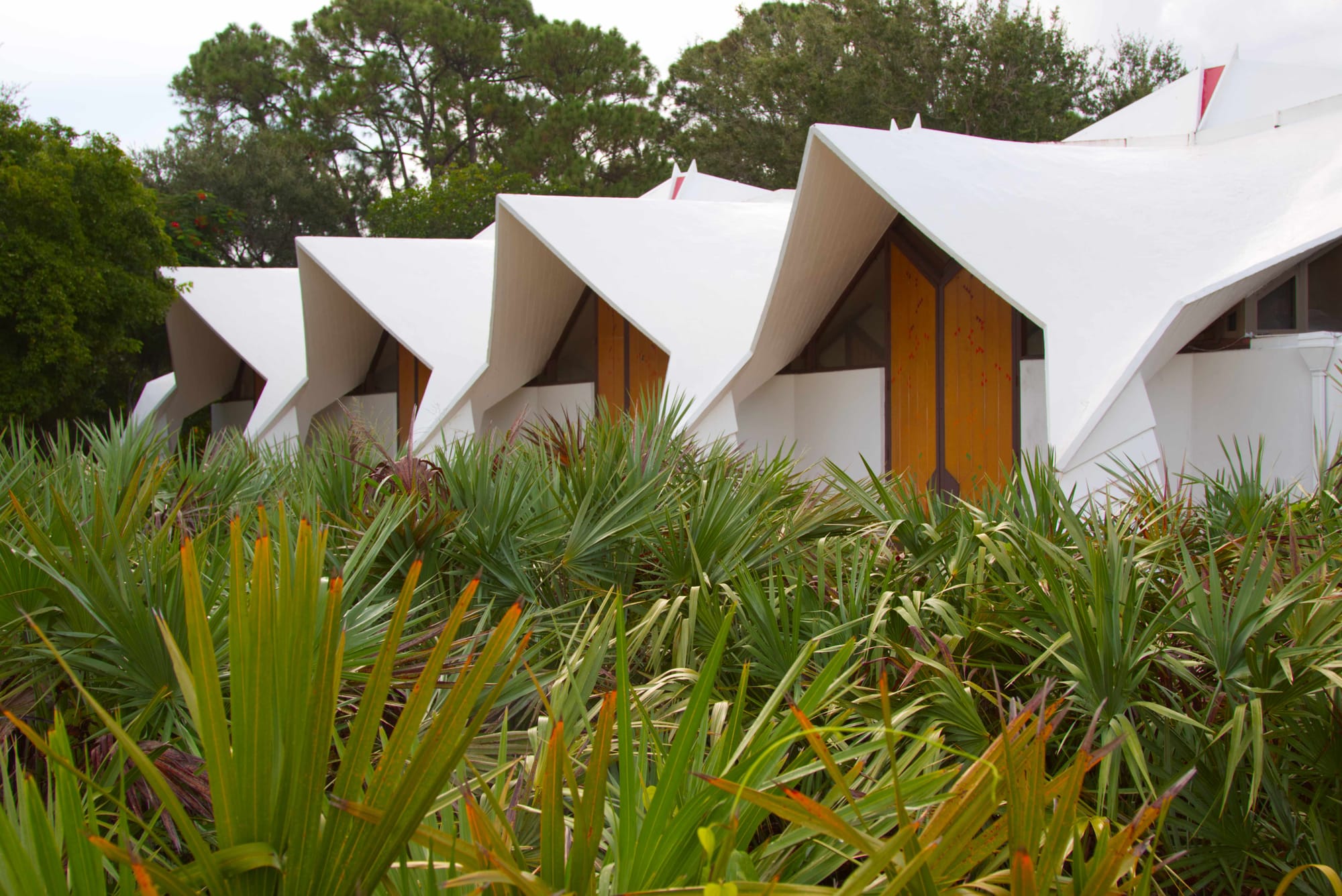
That was fully evident as dozens of people gathered for a panel of local experts on the ongoing contentious facility in the middle of the Everglades, officially named the racist trope of "Alligator Alcatraz."
The panel included former Miami City Commissioner Ken Russell, who made an unsuccessful bid to unseat Maria Elvira Salazar as the US Representative for Florida's 27th Congressional District in 2022 and is now running for Mayor of the City of Miami as well as Yareliz Mendez-Zamora of the American Friends Service Committee and Alexandra Orellana with FLIC Votes, Florida Immigration Coalition. The star of the event may have been the fourth panelist, Betty Osceola of the Panther Clan of the Miccosukee Tribe of Indians.
One of the event's organizers, a UU Miami member and community leader named Judith Echeverria opened the event, asked panelist Betty Osceola to open the event with prayer and then handed the mic to another UU Miami member and leader, Morgan DeFranco to facilitate the panel.
DeFranco opened the panel with the simple, but still complicated question of, "Why are you opposed to the detention center?"
Each panelist gave a unique but important answer.
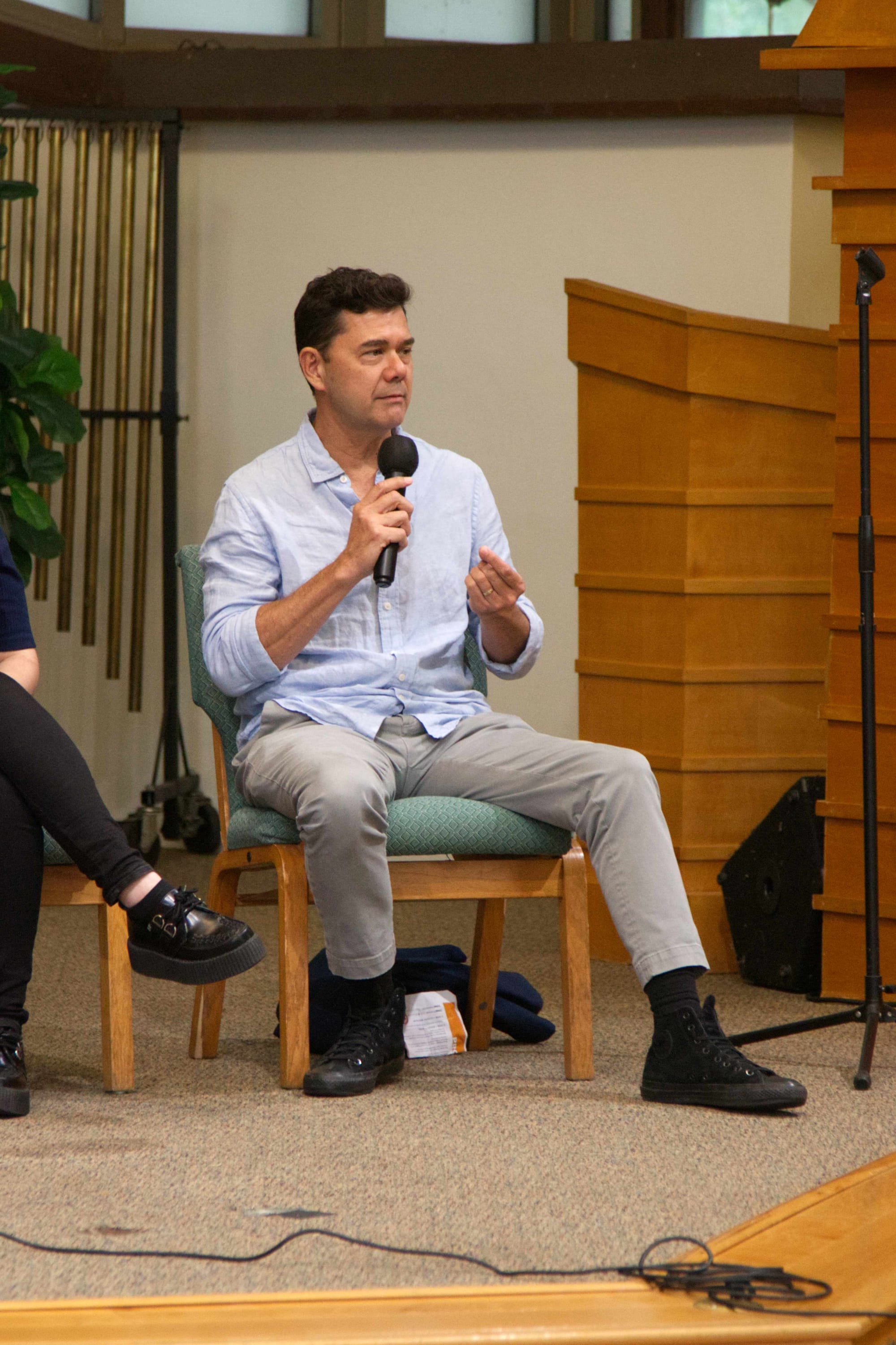
Commissioner Russell began by encouraging the audience to thank Federal Judge Kathleen Williams for her ruling that the site was in violation of state and federal environmental laws and must be, for all intents and purposes, shut down within 60 days. He continued by stating that the judicial branch of the government is holding strong while the legislative and executive branches are faltering.
This may seem at odds with the nightly news to some readers, but Russell's point has backing in Associated Press reporting.

"There are so many reasons why the Alligator Alcatraz detention center is wrong and you can start with the humanitarian reasons, the immigration issue, the falsely declared crisis we have in this country. The demonization of immigrants. That's the first issue with this place is it shouldn't even exist in this form because there is no immigration emergency in the United States of America."
He went on to talk about the environmental impact and the impact on the Miccosukee Tribe of Indians, taking a moment to praise fellow panelist, Betty Osceola for her work and for the Miccosukee Tribe's decision to focus on the environmental law violations for leading the way to build a coalition to stand against it.

Alexandra Orellana with FLIC Votes stated that she had answers for two different perspectives, FLIC's and her own as the daughter of two Peruvian immigrants. As an adolescent life wasn't easy for her and her family, she said. "Despite everything we went through, we're the lucky ones," she told the audience. "We never had to be in this type of detention center."
"My heart cries out for these families," Orellana continued, "Because I know what it's like to be separated from the people you love the most because of cruelty."
Speaking for FLIC, "[FLIC] knew that it was important to respond ... to give perspective to the human lives that are being affected. When in these detention camps [the detainees] are being starved they're not being allowed to bathe, they're not being allowed to communicate with their family members, with their legal representation and it's just ... cruelty."

Yareliz Mendez-Zamora with American Friends Service Committee (AFSC) pointed out that her faith organization was started by Quakers over 100 years ago to fight for human dignity. "Part of that human dignity means," she told the audience, punctuating the importance with a jab to the air, "no detention centers. There is no humane detention."
Not that Mendez-Zamora's statement of her organization's values was in doubt, but the AFSC website states in bold letters, "We work for peace, equality and human dignity (emphasis mine)."
Mendez-Zamora went on to tell the audience that there have been at least 10 deaths in immigration detention centers this year, with half of them occurring in facilities in South Florida.
"Men are dying in these facilities...Women who are crying [with] medical emergencies and for medical attention are not receiving that," Mendez-Zamora continued.
"This place was birthed from cruelty and from there there can be no light."
"We have to really dig deep into our human empathy and be able stand in it...We are seeing how immigrants are being used as a political tool to divide us. We can't be divided. This is our state, this is our home. And we cannot allow more men, women and honestly people we love to die in there," she concluded to applause.

At the end of her statement about why she is against the detention center in the middle of the Everglades, Mendez-Zamora handed the mic to Betty Osceola and Osceola said, "Wow," in response to Mendez-Zamora's passion, as well as that of the other panelists, "I feel like I don't to say anything."
Still, Osceola, the keeper of memory for her clan, found plenty to say, "I got offended because how they were describing my homeland as a wasteland. How they were portraying the wildlife in the area."
She paused and thought about it a moment, "'cuz someone has to speak up for the voiceless. I'm sure the wildlife don't appreciate being used [as propaganda tools threatening violence]."
"Then the comment, 'no one is out there.' ... What about me?" She said gesturing towards herself. "What about the Miccosukee people? It's 2025 and I guess we still don't exist. They still don't see us. And obviously they don't see everyone," she said gesturing to Mendez-Zamora sitting next to her reminding the audience of Mendez-Zamora's passionate plea, "and obviously they don't see everyone who is in that situation (in the detention centers)."
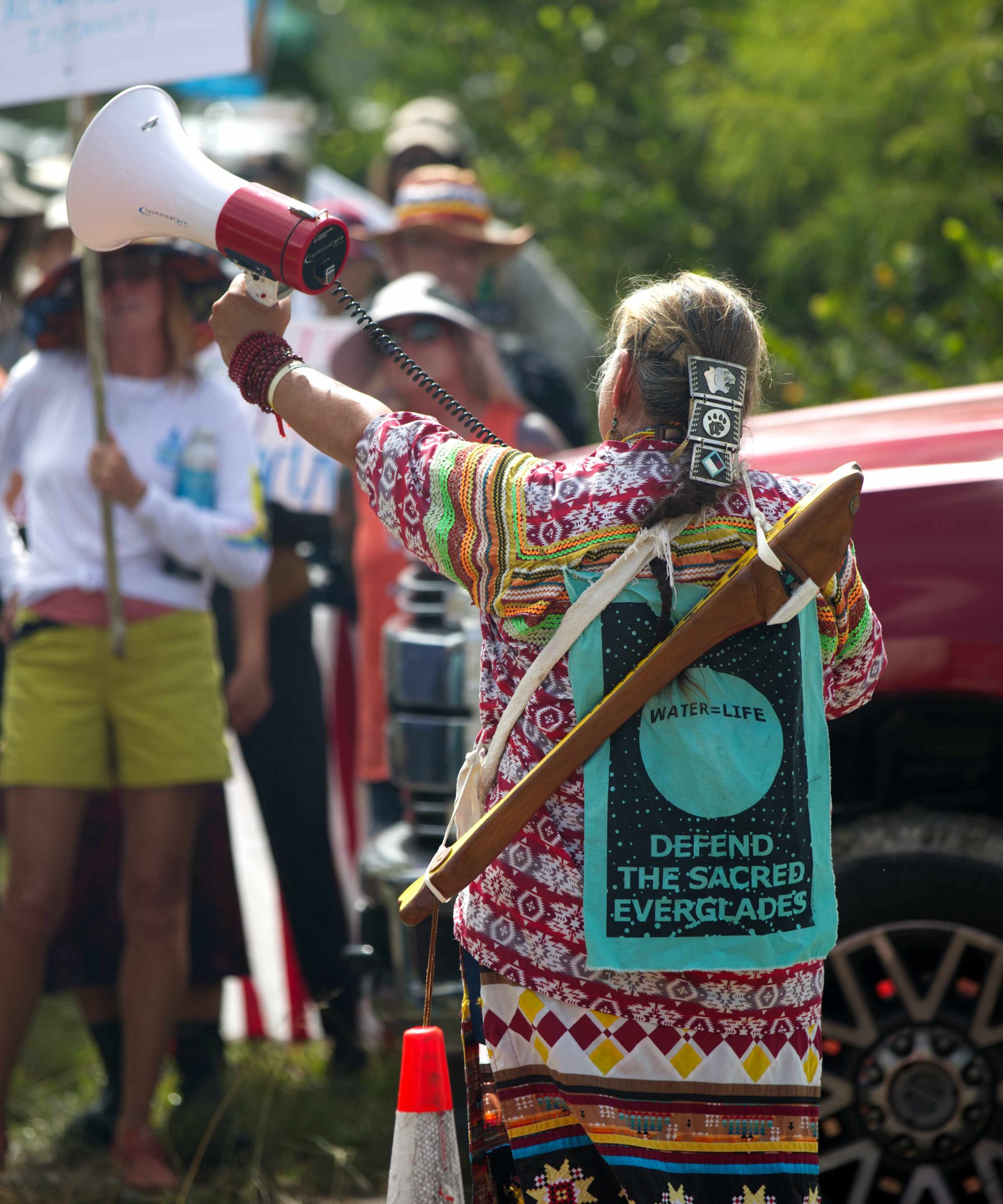
She went on, "The Everglades provided my people a home. When we were being chased and killed over land. In this situation, unfortunately the state chose to use the vehicle of immigration to drive through the doorway over land."
"All of this is about land," Osceola emphasized. "They use the very contentious situation that is very divisive to do what they're doing because they knew they'd have support, unfortunately, for what they are doing, because a lot of people would not tie this to the land."
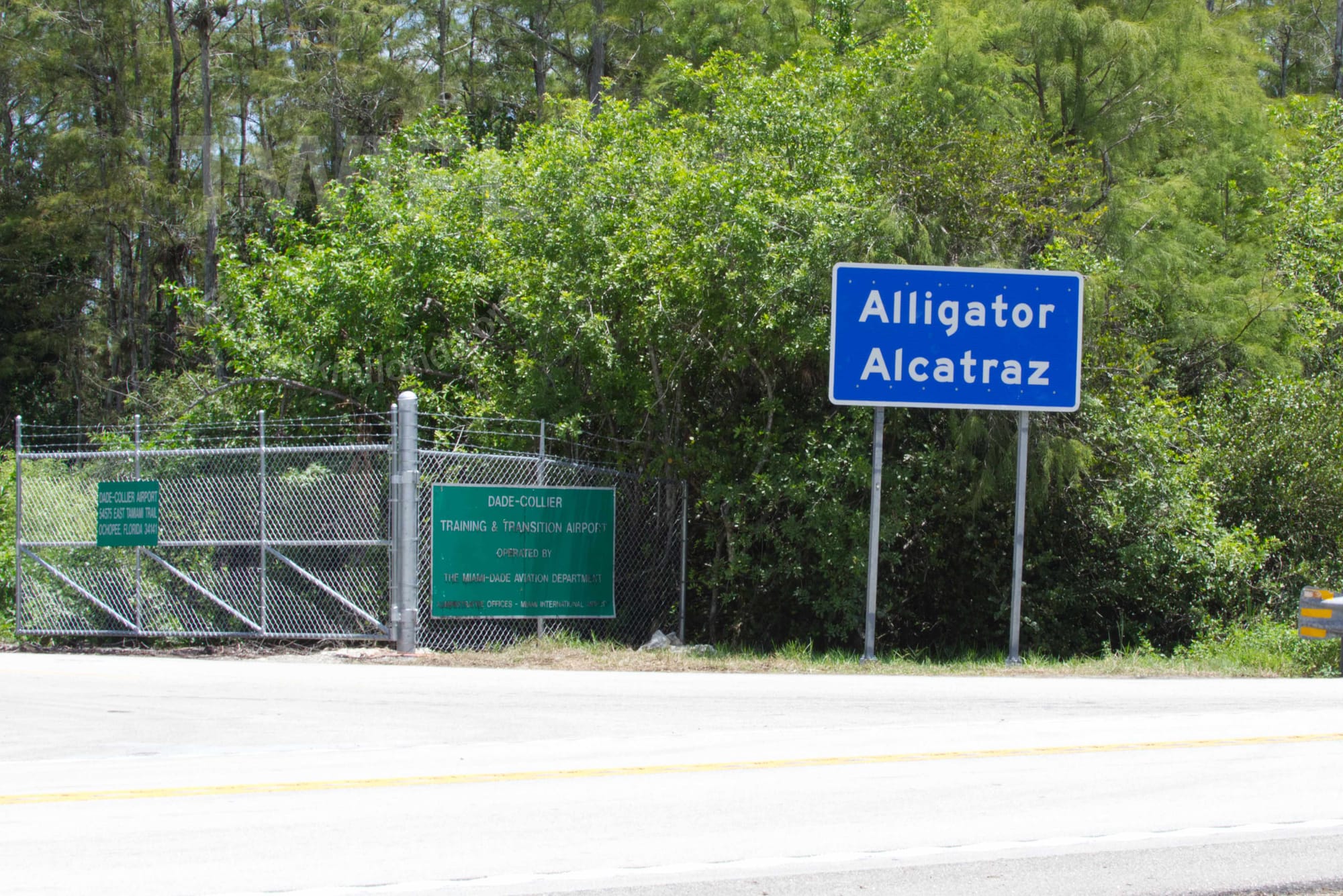
"We are a part of the environment," Osceola explained how and why the land was so important to her people, "we are only borrowing [the environment] from our children. From the future generations.
"We need to respect all life in all of its forms...you know the alligator can't vote. The pythons can't vote. The owls don't vote. The trees don't vote. So someone has to stand up to speak for them. The trees...don't... uproot themselves and go and talk before a county commission meeting or you know congress. So it is our responsibility as human beings, their fellow relatives, to help speak for them and advocate for them."
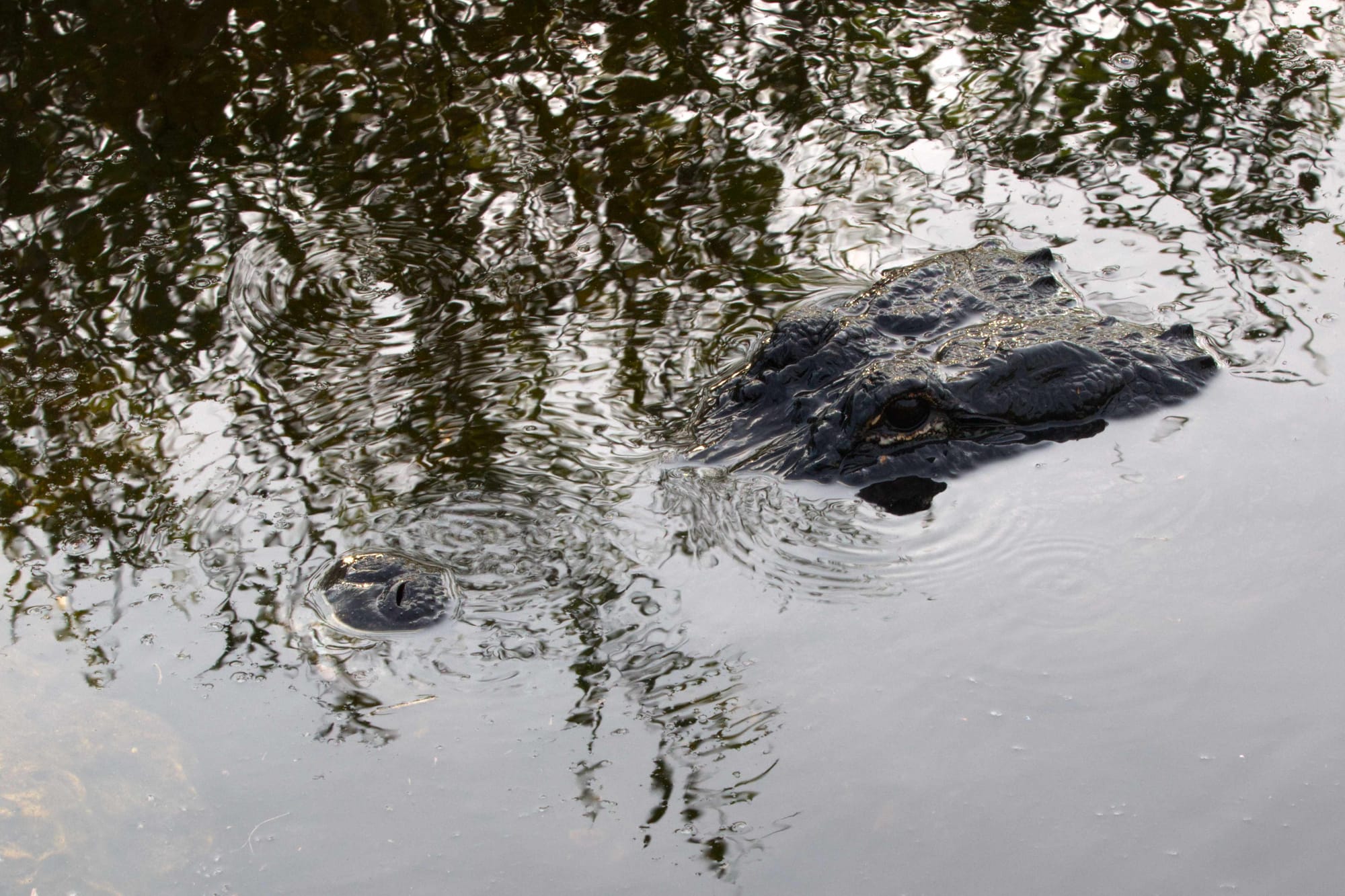
Then Betty Osceola of the Panther Clan of the Miccosukee Tribe of Indians, delivered one of the more profound thoughts I've heard this year: "I always say if we can't respect the environment in which we live, how can we expect individuals to respect each other?
"It's very basic."
Some people wonder why she and the Miccosukee talk so much about the environment when there is a humanitarian crisis going on on that land. She had an answer for them. "People are very bold behind a keyboard, right?" she asked. "I get comments, why don't you advocate for human beings, you just talk about the environment. I'm like, you know, ecosystem 101, human beings are," she paused for emphasis and pointed to the ground in front of her, "a part of that ecosystem. They are part of the environment."
The lack of value for the environment is symptom of the lack of value for the human beings in detention. The environment and the detainees are merely stepping stones, Osceola said, for greedy people to get what they want for themselves.
"If the Earth and everything that makes up the Earth were out for itself (the way some people are) the planet would not be able to hold together...The concept of the Earth is about 'we'... all the other walks of life that should be about "we" to help hold this earth together, is all about I and me, me, me, me. That's why we are seeing this lack of humanity because its all about I, I, me, me, me, and forgetting that its about we, we and we."
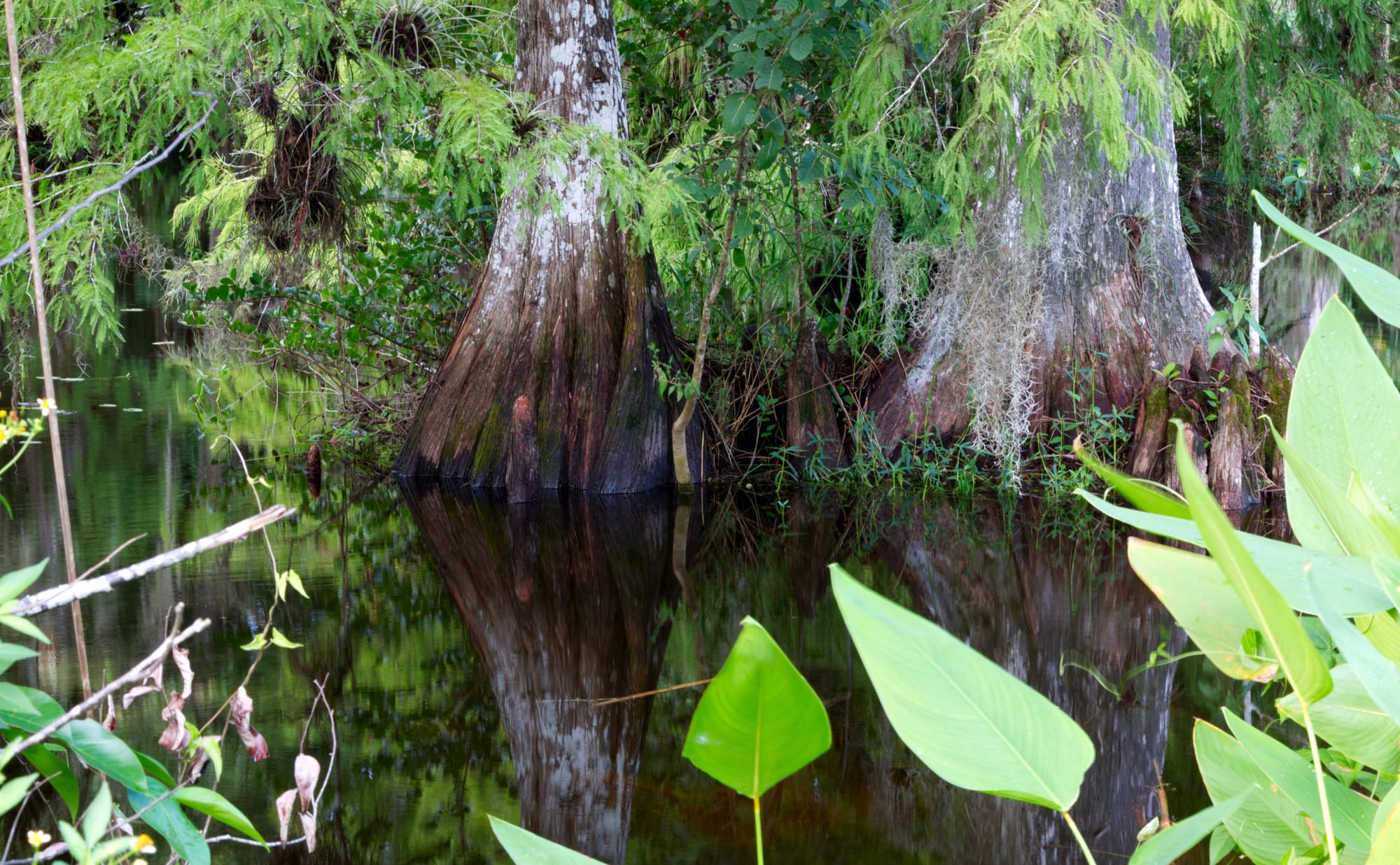
If the text above is any indication, the initial answers of the panelists were both long and important. So, Morgan DeFranco, the UU Miami moderator, "smushed" the remaining questions together and they amounted to, "what actions are you uplifting to shut down the detention center and what actions are you encouraging others to uplift?"
For Ken Russell, the former city commissioner, this comes down to municipalities. There are 412 municipalities in Florida, which are the places most residents have access to civic leaders. With 68% of people in the City of Miami being born outside the United States, Russell thinks people should put pressure on our city leaders to end 287g agreements and that police shouldn't be being used for immigration enforcement, focusing instead on crime.
Russell also pointed out that the City of Miami is the biggest user of the aquifer beneath the Everglades and thus has a huge need to protect the site.
Alexandra Orellana reminded the audience that the fight is not over. There are still hundreds of people in the detention camp in the Everglades and when and if that place is closed, there will still be thousands of immigrants that, as human beings, deserve due process and humane treatment. In a nod to Russell's points about municipalities having power, Orellana suggested people tell their, mayors, their commissioners and sheriffs they do not want the 287g agreements enforced.
"[Lift] the stories that people have to tell in these other detention camps and Krome and BTC and the camps that are being opened in North Florida hearing them out sharing their stories making sure that their faces that their names are known so we can humanize them," she told the audience.
Yareliz Mendez-Zamora answered the question about what people should do by reminding them that each have "God given gifts." Some are writers, some the power to speak and convince people, "what are the gifts that we have to amplify the voices most affected and to make it clear that Florida does not want any more detention centers. What we want is families together."
She concluded with "now is the moment."
Osceola encouraged people to donate to Friends of the Everglades and to continue to share the stories about what is going on here in South Florida.
"But what we need are good human beings," she said. Which is "important to bring the humanity back to the situation."
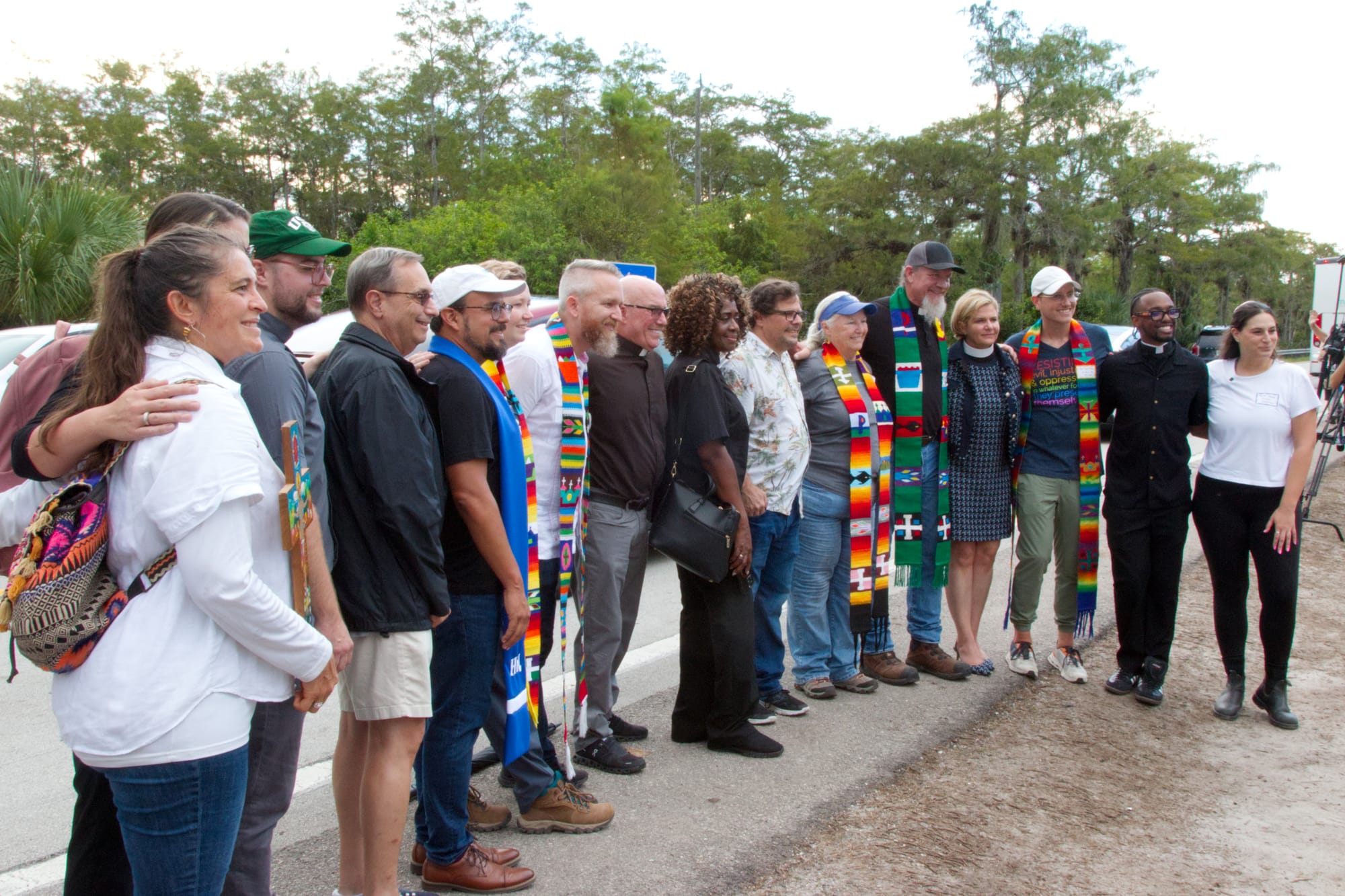
"These prayer vigils have been a way to unite everyone regardless of how they vote and how they think they've been able to find common ground in their faith and in their prayer and also common ground in their love for public lands. Because in order to heal and to have that humanity we have to have that natural areas to go out and decompress. I've been very adamant to keep the politics out of it."
Osceola also begged the audience to listen to the people who are most impacted by the detention center in the Everglades. She said that when she goes to visit another tribe her tradition is to ask how she can help, not to tell her hosts what they should do to improve their lot in life. "When you go into someone else's territory, help in the way they need help, not in the way you think we need help."
Calling protests across from the detention center on US 41 wasted on the drivers and police at the gates of the facility, she pointed instead to the prayer vigils that had gathered the previous two weeks and would gather again the following day as helpful.
"These prayer vigils have been a way to unite everyone regardless of how they vote and how they think they've been able to find common ground in their faith and in their prayer and also common ground in their love for their public lands. Because in order to heal and to have that humanity we have to have that natural areas to be able to go out and connect with and decompress. So we have that one uniting thing."
"I've been very adamant to keep the politics out of it because that's very divisive. I don't even talk to my own family about politics." Instead she implored people to "Have conversations with each other. Quit yelling. Have conversations and discussions...How can we look each other as human beings?"

Asked by an audience member if it is appropriate to continue having protests in front of the detention center Osceola expanded on her thinking about protests in a way that some in the audience may have found surprising.
"Good question. I don't protest. I advocate and educate. You're not going to get anywhere protesting. Because that word (protests)...when people hear it they already have a negative connotation to it."
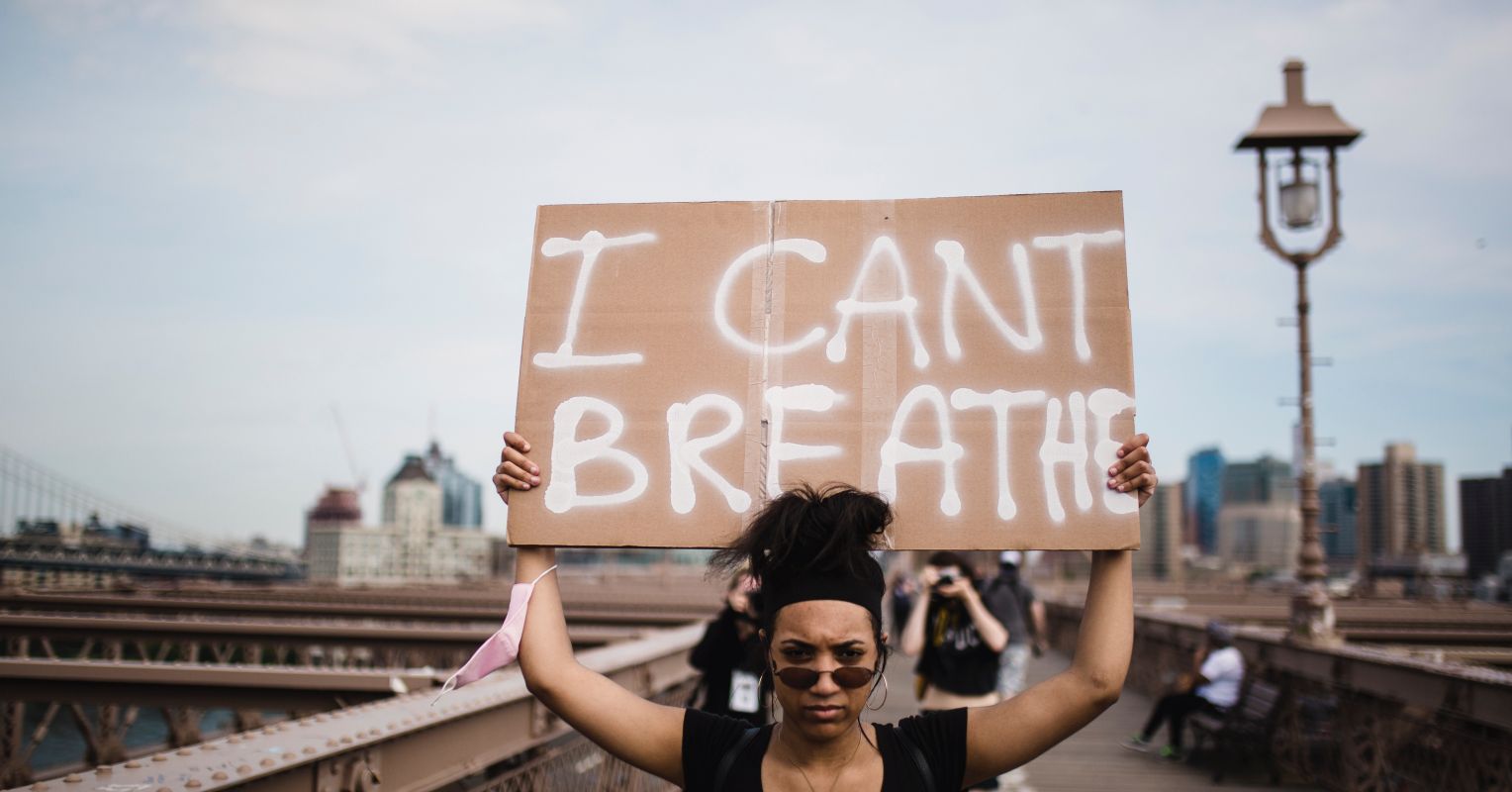
Researchers on protests offer a more nuanced reality around protests– some are effective and while others are indeed counter productive.
Also, some readers might not have a negative connotation to the word "protests." (This blog loves protests as they are a core part of the expression of freedom of speech).
Still, as she said, "[The Miccosukee] don't need anyone coming in on a white horse." Protests can be effective at commissioners' offices, rather than directed at truckers pulling out of the site.
The important thing about the area surrounding the detention center on US 41 is it is the Miccosukee home and, as Osceola points out, it is best to ask how we as visitors to that home can help, rather than telling the people who live there what they should and shouldn't be doing.
After all, the Miccosukee and their kin in the Seminole Tribe have been defending that land, successfully, for generations. They know what they're doing.
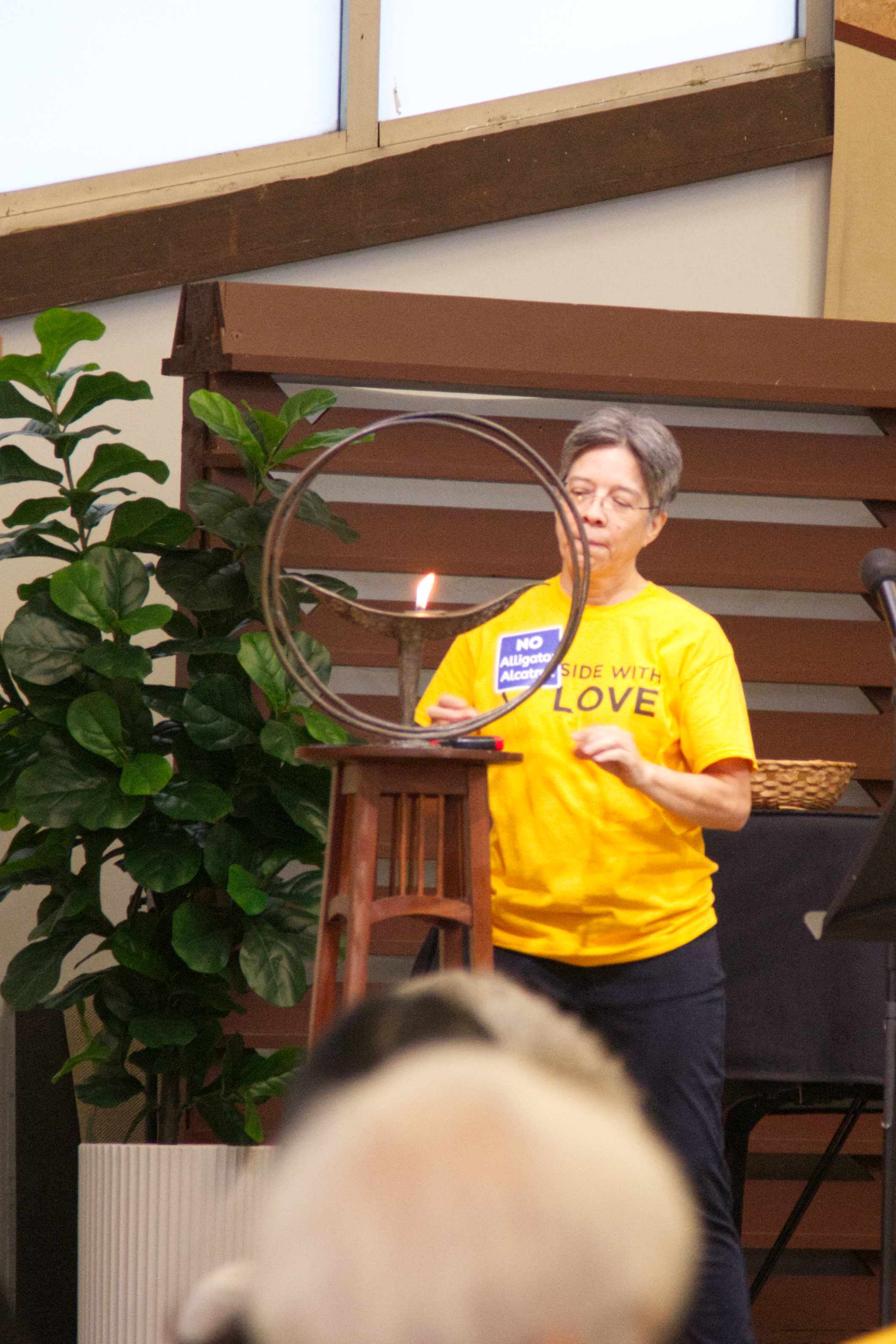
The panel event, which included door prizes of beautiful plants and emergency radios for attendees and tasty treats and drinks for attendees, was organized by UU Miami's own Judith Echeverria. Echeverria, who has taken on a leadership role at UU Miami, wishes more people would see the importance of the outstanding lay leadership in the congregation. When I spoke with her the following day at the prayer vigil in front of the detention center on US 41, that while religious leaders from several faiths were "in front" during the vigil, no one from UU Miami was asked to represent their congregation.
While UU Miami waits for an official religious leader, it is clear that the small but mighty congregation is led by people like Echeverria who are making a difference in South Florida.
The entire panel discussion can be found on UU Miami's YouTube channel.


